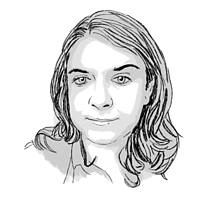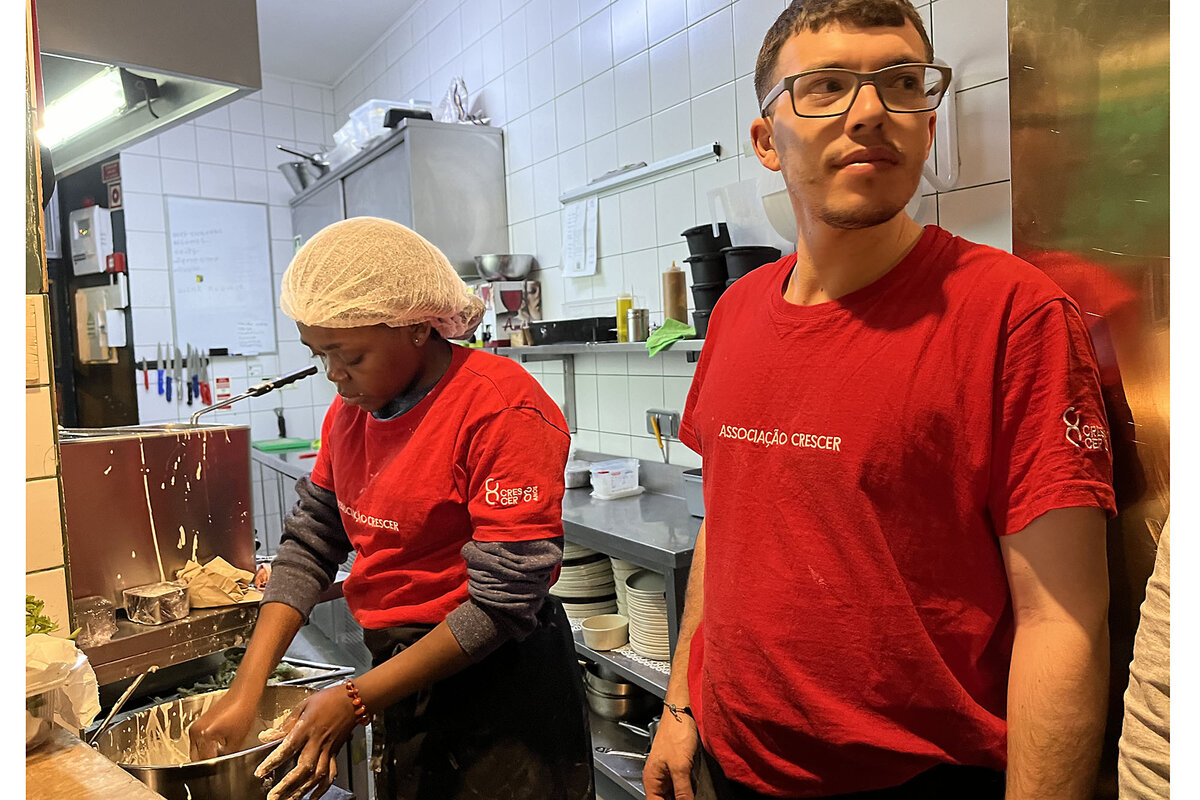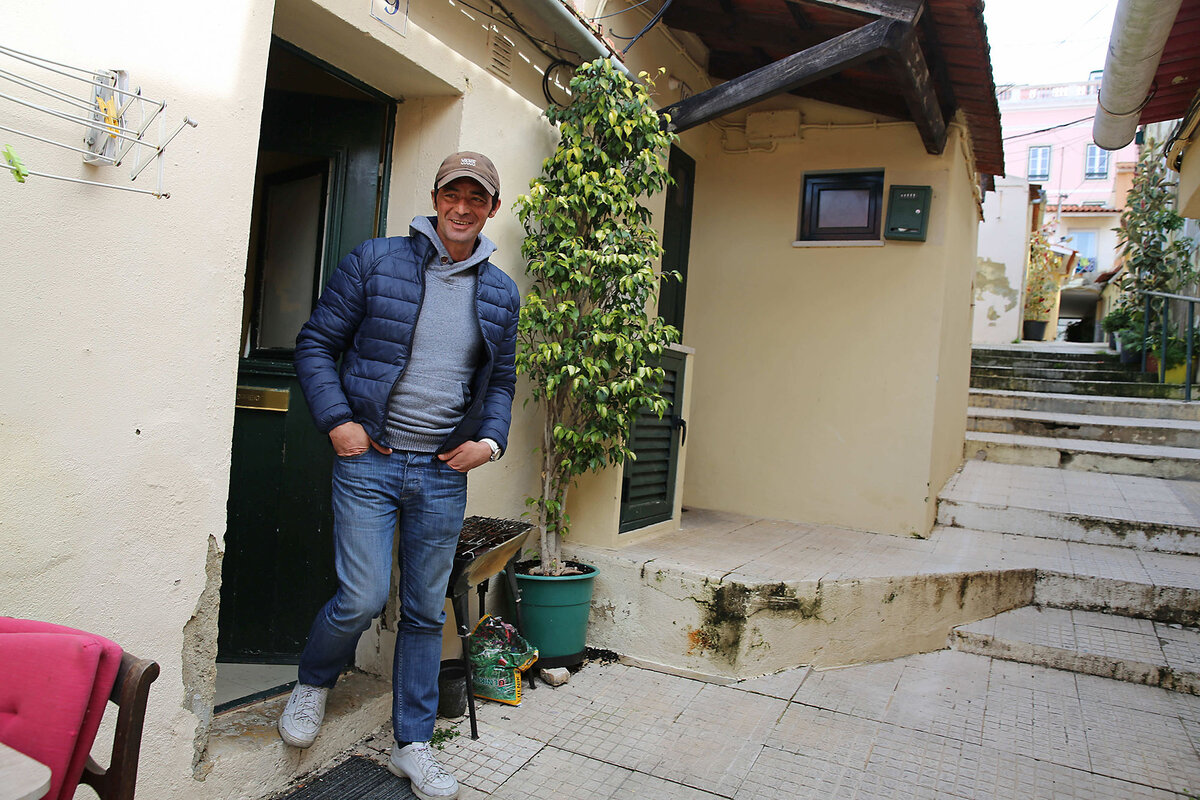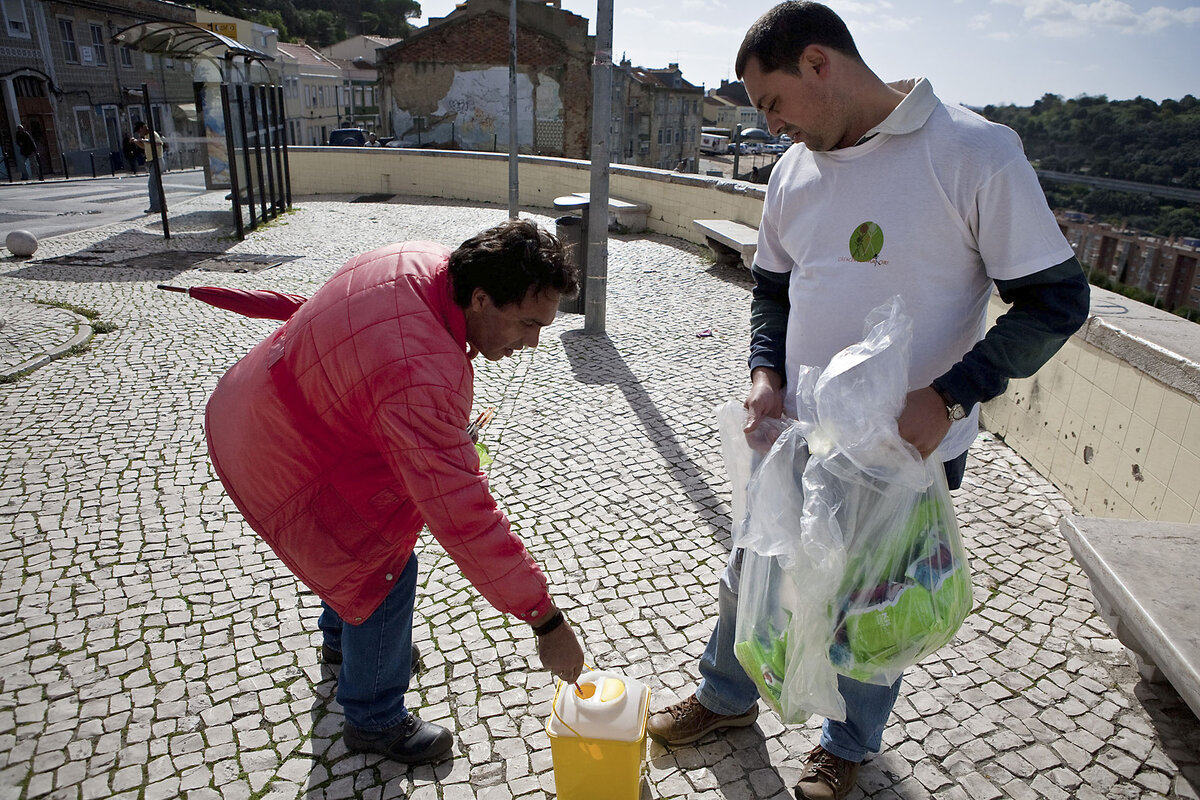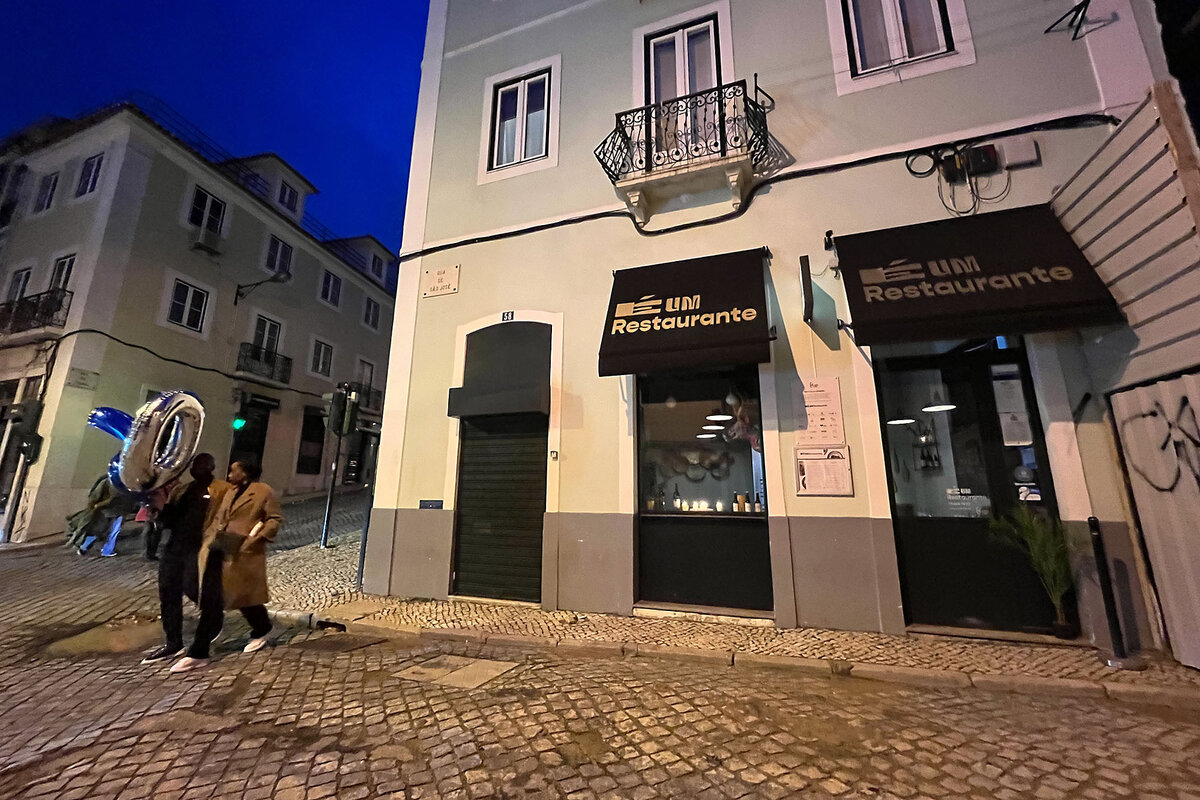How Portugal became a world leader in fighting drug addiction
Loading...
| Lisbon, Portugal
Nuno and Mariana are on a first-name basis with everyone in the grip of drug addiction they encounter while crisscrossing Lisbon. They know those who reside in tents on littered, suburban hillsides just as well as those who consume drugs in bustling neighborhoods at the heart of the Portuguese capital.
They know their stories – like that of the university professor-turned-police spotter for drug traffickers, or the migrant from India struggling to navigate health services. And, most importantly, they care about everybody’s immediate and future needs.
“Our priority is to make relationships with people,” says Mariana Gomes, a bubbly social worker who methodically jots down whom she meets and what they need in a giant binder. “When we say, ‘Do you need anything?’ we really are asking.
Why We Wrote This
A story focused onPortugal was the first country in the world to decriminalize drugs. Its drugs chief is clear that progress came from combining that step with compassion, connection, and support. Part 3 of a series. Here are Parts 1 and 2.
“We try to promote an honest relationship, a horizontal conversation,” she continues. “It seems small, but it makes all the difference in building trust.”
The pair walk in thick-soled shoes while distributing silver foils and safer drug-use kits. Their eyes are trained to recognize health issues. They handle the basics on the spot and organize follow-ups for harder cases.
“Most of the job we do is about creating goodwill, because we don’t have all that much to give,” says Nuno Maneta, a peer educator who overcame drug addiction himself. “It helps a lot if you understand the point of view of the person.”
The mindset of this duo working for Crescer, a nongovernmental agency, reflects Portugal’s broader approach to debilitating drug use. The goal is to help people overcome the issues that drove them to that point. It can be mental or physical health issues, homelessness, or job loss. People are not judged for consuming drugs. Instead, they are gently guided to manage addictions in healthier ways.
“They are lost on drugs, but in general these are good people,” says Mr. Maneta, who sees the key to recovery as the right mix of personal will and consistent support. “We don’t know if they are ready or not, but if they want to, we help them to try to take the right steps.”
“What made the difference ...”
Portugal’s drug addiction landscape and approach to treatment was very different at the turn of the century. The country at the time faced a drugs crisis and the HIV/AIDS pandemic. Those with drug addictions who had lost a limb due to infections were a common sight in neighborhoods like Casal Ventoso, where thousands of people were consuming hard drugs like heroin.
“These people were almost never in touch with social and health structures,” says Americo Nave, head of Crescer, which was established in 2001. “Today, it is very difficult to find someone who is not in touch.”
Mr. Nave credits the change to the 2001 decision to decriminalize drug consumption in Portugal, and to a society-wide effort to pursue a harm reduction strategy instead. Legal reform was followed by outreach teams, homeless centers for drug users, low-threshold methadone programs, and walk-in points of care.
“We constructed a net, a whole system of complementary solutions,” he says.
The NGO itself follows a multipronged approach, helping people restore their sense of dignity and faith in the future. Its programming includes housing solutions, on-the-job training, individual counseling, and help navigating appointments with medical and state entities. Crescer has 107 paid employees; a quarter of them hail from a vulnerable situation.
“What made the difference is we worked together with these people, shoulder to shoulder,” stresses Mr. Nave. “We look at people based on their skills and not their bad deeds. And we work with these people to fight stigma – that’s the biggest problem.”
Tiago Gomes is a man on the mend, determined to renounce cocaine and heroin. It’s been two months since the last use – a feat he credits to Crescer, which moved him off the streets into housing during the COVID-19 pandemic. Initially, he slept on the floor because he had to relearn the habits of being indoors. Now, he is focused on getting a job and reconnecting with his daughter.
“It’s a process,” he says, sitting in a tiny studio that costs €700 ($760) per month. Participants in the municipality-funded housing-first program are expected to contribute toward rent, provided they manage to secure an income. “Sometimes I feel like I am missing drugs; sometimes I forget drugs. I know they exist, but I try to escape.”
“It’s more carrots” than sticks
Drug consumption is not legal in Portugal. What the 2001 reform changed is that it is no longer a criminal offense. Possession for individual use may lead to administrative penalties, such as fines or community service. Local commissions – comprising legal, health, and social work professionals – decide whether such a penalty is applied.
“It’s more carrots [than sticks],” says João Goulão, the national drug coordinator who was one of the original architects of the law. “Someone with addiction is always divided between the willingness to stop it and the willingness to continue to do it. So, if you are going to offer something to bring about a change, you need to offer it now.”
The capacity for Portugal to do so has been limited by budget cuts. Still, about 80% of people presented to commissions today are recreational and occasional users rather than problematic ones. The commission considers risk factors – divorce, loss of job, a death in the family – when inviting people to access treatment.
Portugal offers a wide range of models for recovery. There are therapeutic communities focused on specific groups like youth, seniors, pregnant women, and women with children. In the case of opioids, people may benefit from substitute treatments based on methadone or buprenorphine, which help reduce withdrawal effects and cravings.
The results have won Portugal global attention. The Portuguese approach is credited with reversing the drug addiction explosions of the 1980s and 1990s and halting the HIV/AIDS pandemic. Across the Atlantic, it has inspired policymakers in British Columbia, Canada, and in Oregon. In Europe, the Czech Republic has decriminalized drugs, and Ireland is considering that step.
Decriminalization alone does not work, cautions Dr. Goulão. “This is a very volatile area,” he says. “One of the key elements in our case, for the good and the bad, is that we have been stable in terms of leadership, at least at the technical level. I have worked with different governments and what varies is the speed and attention given to this issue.”
Information about the evolution of habits related to drug use is collected in an annual survey of 18-year-olds. Another source of insights are NGOs working on the front line. A third indicator is the number of people who approach treatment facilities. Recent crises ranging from the financial crisis to COVID-19 have partially undermined progress and made the problem more visible. So has the rise in homelessness and migrant communities struggling with addiction.
“There is a clear decrease,” says Dr. Goulão, who says there were about 100,000 hard-drug users in the country in 2001. “We estimate that we have half the problematic users that we had in the beginning of the century.”
At É Um Restaurante, serving more than food
As dusk descends in Lisbon, the assistant cooks and servers of É Um Restaurante spring into action. Some, like Daniela, are struggling with new-job jitters. It’s her second day of work. Rafael do Carmo, who took the cold-turkey approach to overcome methadone addiction, has been there for over six months.
“Every day, they become a little bit more focused and hopefully ready for the real world,” says chef Ricardo Guimarães of his team.
The restaurant delivers diners sophisticated dishes like duck and yellow croaker ceviche. As part of Crescer’s program, it offers staff an opportunity to start fresh and learn the basics of professional etiquette: Show up ready to work and on time. The chef copes with unannounced absences with grace and gentle explanations about why their presence matters.
“These are normal people who need our help,” says José Agostinho, who oversees the restaurant project. “They are not aliens. We need to create tools for them to rebuild their lives. Otherwise, they have nothing.”
Part 1: Stick, meet Carrot. How Portland police and activists teamed up to fight addiction.
Part 2: ‘Our children would not be dead.’ Why these moms are advocating for safe drugs.





